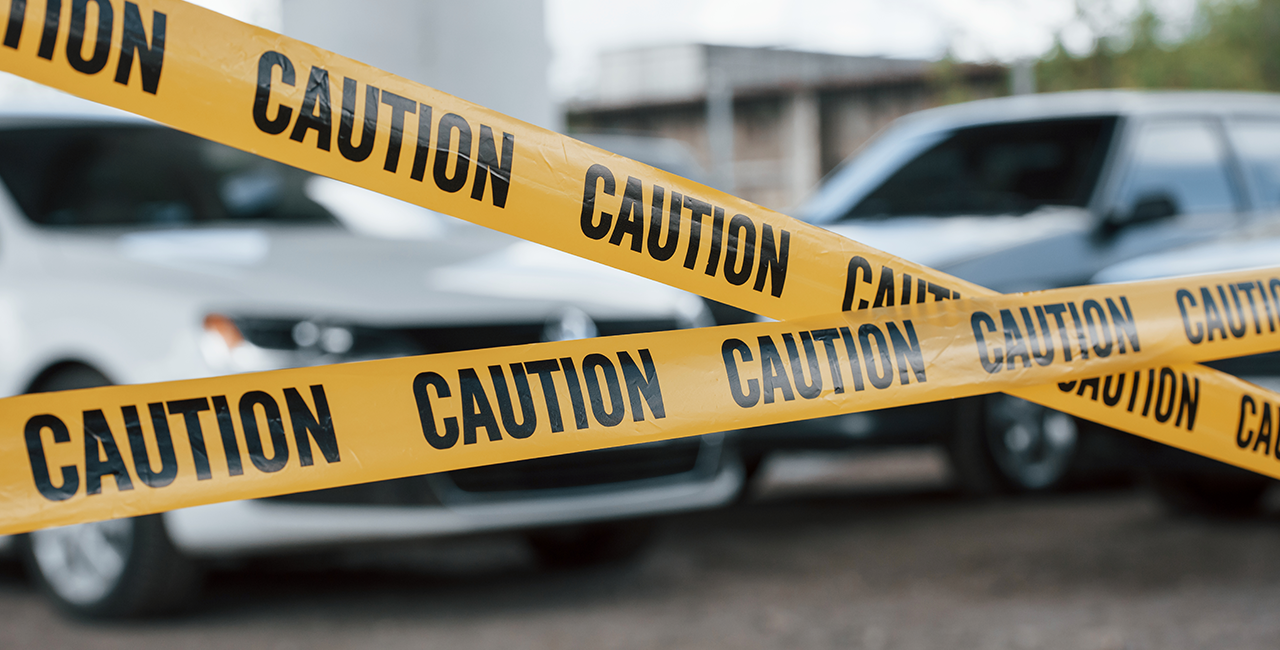Helping hand: What action steps to take if you’ve been injured as an Uber or Lyft rideshare passenger?
The presence of Uber and Lyft as rideshare companies have transformed the transportation industry. With their growth, though, comes significant responsibility and potential danger for passengers and a need for increased awareness about legal rights and best practices when it comes to accidents in a rideshare situation.
What should you do if you’ve been involved in a rideshare accident?
Yes, Uber and Lyft require their rideshare drivers to have personal car insurance.
Yes, they do provide additional insurance coverage while drivers are working for them.
And, yes, you can and should file a claim against Uber or Lyft if your rideshare driver caused you an injury through careless or distracted driving, intentional malfeasance or simple negligence.
These are the steps you should take.
No. 1: Check yourself or fellow passengers for injuries.
Safety first. If anyone is injured, call 911 and remain calm. Seek medical attention immediately.
No. 2: Call the police
Call 911. A police officer will be dispatched promptly. A police report protects your rights and documents the incident. Get the name of the investigating officer and an incident report number to request a copy of the report for your records, or for your attorney to investigate.
No. 3: Obtain evidence
Make sure you exchange names and contact information. Take photographs or videos.
No. 4 Report the incident to Uber or Lyft.
Accident reporting forms are available on Uber and Lyft through their websites. If you’ve suffered an injury, consider consulting an attorney before taking this step.
No. 5. Document the incident
Write down what happened. Do this immediately. These contemporaneous notes will help when you speak to an insurance adjuster or possibly testify in court.
No. 6 Call a lawyer
Protect yourself. Protect your rights. A licensed and experienced attorney can help you immensely
What are the differences in commercial insurance for drivers as opposed to rideshare drivers?
Because Uber and Lyft don’t consider rideshare driver as employees and call them independent contractors, the companies went several years not carrying insurance coverage for drivers.
The majority of the drivers had personal policies with zero coverage while engaged in commercial driving incidents.
That changed after a wrongful death lawsuit being filed in 2013 in San Francisco when an Uber driver struck and killed a child. That led to new standards insurance coverage requiring Uber and Lyft drivers to carry personal car insurance and some commercial coverage from the company while drivers are working for them. Coverage limits vary considerably from state to state.

Whose insurance is applicable?
Uber and Lyft won’t automatically cover your damages in an accident. And you have to show fault for the accident to get compensation
What are the coverage limits?
If injured by a rideshare driver while waiting for a ride, Uber or Lyft will cover up to $100,000 in bodily injury per accident for a maximum $50,000 per person and $25,000 for property damage.
If you were injured by a rideshare driver when the driver was picking up passengers or during a ride, Uber or Lyft provide up to $1 million in liability coverage. The companies might also offer uninsured/underinsured motorist insurance in some states and comprehensive and collision insurance for drivers who maintain the coverage on their personal auto insurance.
If you were injured by a rideshare driver who isn’t using the Uber or Lyft app at the time of the accident, you’re limited to filing a claim with the driver’s personal car insurance. A lawyer can subpoena electronic records to find out whether the driver had the app on or off at the time of the accident.
Why do rideshare accidents typically happen?
Rideshare driver was distracted
Rideshare driver was texting while driving
Rideshare driver was speeding
Rideshare driver fell asleep at the wheel
Rideshare driver was under the influence of alcohol or drugs
What if the other driver is at fault?
The other driver is normally legally responsible for an accident if they’re ruled liable. For example, if a truck driver injures you while you’re riding in an Uber or a Lyft you can file a claim with the truck driver’s insurance company. That isn’t always the case, though.
Can you sue Uber or Lyft?
Yes, but it’s complicated.
Because of the classification issue of the rideshare drivers a independent contracts, not employees, companies are more likely to be held legally responsible for the negligence of an employee than for an independent contractor .
That doesn’t make it impossible or necessarily improbable, though.
For example, what if your damages exceeded the limits of a rideshare driver’s insurance policy?
Or .. what if the company was careless in hiring, training or retaining the driver who caused you harm.

What’s the time limit to file?
Every state has a different statute of limitations. Most give people one to three years to file a civil lawsuit. Consult a lawyer to know your rights in these instances.
What are the financial stakes?
A potential personal injury lawsuit needs to factor in past and future medical expenses as well as lost income in the past and future and the severity of your pain and suffering.
That involves the cost of your accident-related medical care, treatment and therapy.
Pain and suffering can be measured by insurance adjusters using the multiplier factor
For example, if your medical bills are $10,000 and the adjuster deems the appropriate multiplier is 2.5 then pain and suffering damages should be $25,000.
Can Uber and Lyft force arbitration?
Another potential barrier to filing a lawsuit directly against a rideshare company is the terms of service you agree to when you download and use Uber and Lyft apps.
Terms of service are a contract between rideshare companies and their drivers and riders. Uber and Lyft’s terms of service require riders to resolve most legal disagreements with the companies through binding arbitration. Exceptions to the arbitration agreement are various.
That includes individual claims brought in small claims court, individual claims of sexual assault or sexual harassment, and certain intellectual property claims.
Do you need a lawyer to sue Uber or Lyft?
Yes it’s highly advisable to hire an attorney because it’s a complicated matter and Uber and Lyft will have excellent attorneys working on their behalf.
Yes, because personal injury lawyers work on a contingency fee basis.
If you don’t receive a settlement or court award, your lawyer doesn’t get paid. Win or lose, you could owe court filing and copying fees.
What’s happening in Texas regarding Uber and Lyft?
Uber and Lyft began in Texas in 2009 and 2012, respectively.
Both tried to campaign against fingerprint background checks for their drivers and refused to comply with Texas law until legislation was signed allowing them to operate without fingerprint checks
Uber and Lyft drivers have been responsible for a large percentage of accidents on Texas roadways, according to public records.

Contact us
At Mokaram Law Firm, our team of highly trained Houston personal injury attorneys is dedicated to providing you with outstanding support and professionalism. Resolving complex legal issues can be difficult, especially in sensitive cases like those involving victims of rideshare app drivers.
We are here to ease your burden and seamlessly guide you through the process. You don’t have to go through this alone. Contact us today at (281) 609-9224 and find out how we can help ease your anxiety and get the compensation you deserve.
Contact our legal team today! Your peace of mind and safety are our top priorities.
Recent Posts
-
 30 Jan 2025Washington, D.C. Plane Crash: Investigation Underway Following Collision with Black Hawk Helicopter
30 Jan 2025Washington, D.C. Plane Crash: Investigation Underway Following Collision with Black Hawk Helicopter -
 22 Jan 2025How Do People Who Text and Drive Get Punished in Different States?
22 Jan 2025How Do People Who Text and Drive Get Punished in Different States? -
 22 Jan 2025Do Pedestrians Have the Right of Way?
22 Jan 2025Do Pedestrians Have the Right of Way? -
 20 Jan 2025Are Radar Detectors Legal? Everything You Need to Know About Radar Detector Laws
20 Jan 2025Are Radar Detectors Legal? Everything You Need to Know About Radar Detector Laws -
 20 Jan 2025What Age Can You Get Your Driver's License in Texas?
20 Jan 2025What Age Can You Get Your Driver's License in Texas? -
 07 Jan 2025Legal Help for Families Affected by Jeju Air Flight 2216
07 Jan 2025Legal Help for Families Affected by Jeju Air Flight 2216 -
 17 Dec 2024Is Lane Splitting Legal in Texas?
17 Dec 2024Is Lane Splitting Legal in Texas? -
 17 Dec 2024Can Police Write Tickets in a Car Accident? | Legal Insights
17 Dec 2024Can Police Write Tickets in a Car Accident? | Legal Insights -
 01 Dec 2024What is the Minimum Age to Get a Tattoo in the USA?
01 Dec 2024What is the Minimum Age to Get a Tattoo in the USA? -
 29 Nov 2024Is It Really Illegal to Drive Barefoot? Debunking Common Myths
29 Nov 2024Is It Really Illegal to Drive Barefoot? Debunking Common Myths -
 29 Nov 2024Is It Illegal to Get Someone Drunk?
29 Nov 2024Is It Illegal to Get Someone Drunk? -
 29 Nov 2024Is it Illegal to Drive With Headphones? Understanding the Risks and Laws
29 Nov 2024Is it Illegal to Drive With Headphones? Understanding the Risks and Laws




